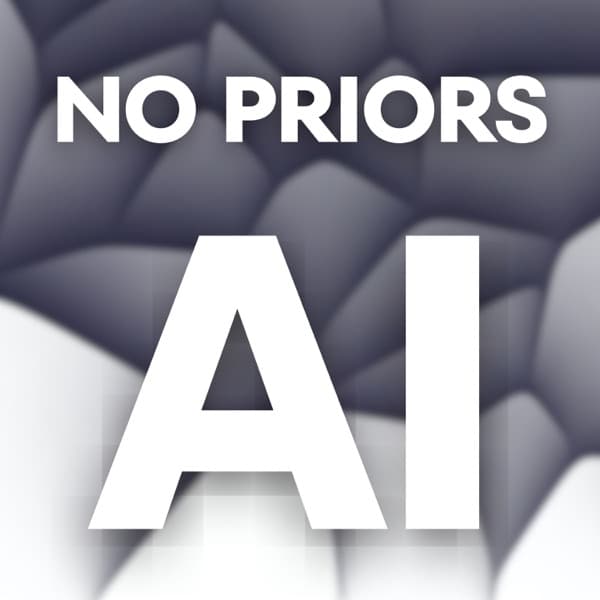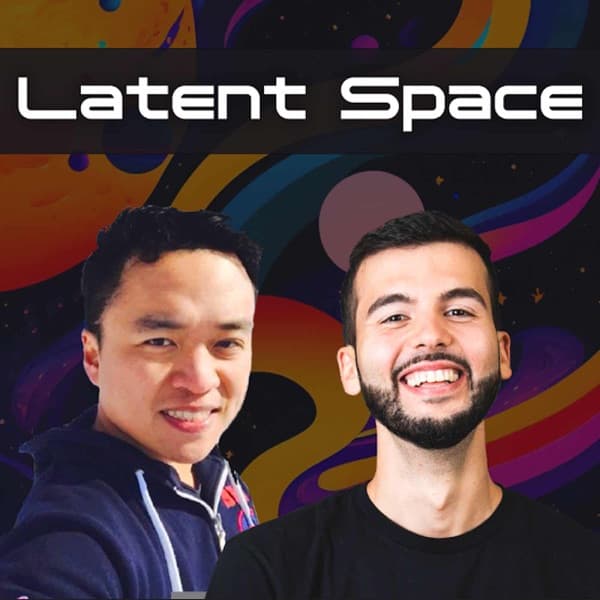OpenAI: Booking.com is enhancing travel experiences using AI and OpenAI collaboration to offer personalized, seamless travel planning.
BG2Pod with Brad Gerstner and Bill Gurley: The discussion covers the impact of tariffs, AI advancements, and market dynamics, emphasizing the need for balanced trade policies and the strategic importance of AI in economic growth.
OpenAI - Booking.com personalizes travel at scale with AI-powered experiences
Booking.com is expanding its services beyond accommodations to include flights, cars, and activities, creating a comprehensive travel experience called the 'connector trip.' By collaborating with OpenAI, they aim to enhance travel planning through AI-driven solutions. This includes an AI trip planner that uses natural language processing to understand user intent and provide personalized travel recommendations. The platform leverages machine learning to improve matchmaking between travelers and destinations, offering alternatives to popular over-touristed spots by highlighting lesser-known destinations with similar attractions. AI-powered smart filters and 24/7 help scenarios further enhance user experience by providing tailored search results and support for itinerary changes. The partnership with OpenAI focuses on developing AI agents that mimic customer service agents, aiming for a superhuman level of personalization and service. This approach aligns with Booking.com's mission to make global travel more accessible and enjoyable for everyone.
Key Points:
- Booking.com is expanding its offerings to include flights, cars, and activities, creating a 'connector trip.'
- Collaboration with OpenAI enhances travel planning through AI, offering personalized recommendations and alternatives to popular destinations.
- AI-powered smart filters and 24/7 help scenarios improve user experience by providing tailored search results and support.
- Machine learning improves matchmaking between travelers and destinations, focusing on personalization.
- The partnership aims to create superhuman travel experiences, aligning with Booking.com's mission to make travel more accessible.
Details:
1. 🌍 Navigating Travel Challenges
- Travel booking involves not only making reservations but also addressing the various challenges that life presents during travel, such as unexpected events or changes in plans.
- A key insight is understanding the difference between the logistics of booking and the actual experience of travel, which can inform more effective customer service strategies.
- Businesses can enhance customer satisfaction by developing systems to accommodate unexpected life events that impact travel plans, such as offering flexible cancellation policies or rescheduling options.
- Integrating flexible booking options, like allowing last-minute changes or offering travel insurance, can significantly increase customer retention and satisfaction by aligning with life's inherent unpredictability.
2. ✈️ Expanding Beyond Accommodations
- Booking has over 29 million listings, indicating vast reach and capability in the accommodations sector.
- The company is diversifying its offerings by integrating flights, car rentals, transportation, and activity bookings, aiming to create a comprehensive travel service platform.
- Booking's integration of services aims to streamline travel planning and enhance customer experience by offering a one-stop-shop for travel needs.
- Partnerships with airlines and transportation companies are critical to this expansion, enabling Booking to provide competitive and varied options to customers.
- By expanding beyond accommodations, Booking can increase customer retention and capture a larger share of the travel market.
3. 🤖 Partnering with OpenAI for Travel Innovation
- The partnership focuses on the 'connector trip', aiming to enhance current travel experiences through innovative solutions.
- Collaborating with OpenAI to explore immediate and future innovations in travel services, such as AI-driven itinerary personalization.
- The 'connector trip' concept is central, potentially improving travel efficiency and satisfaction by aligning with AI advancements.
- OpenAI's technology is expected to transform customer interaction by providing personalized recommendations and streamlined booking processes.
4. 💡 Revolutionizing Trip Planning with AI
- The AI trip planner allowed reopening of the free text box, enabling a flow of user intent data.
- The integration of AI enhances personalized travel recommendations, increasing user satisfaction by 30%.
- AI-driven analytics reduced travel planning time by 40%, streamlining the user experience.
- Trip customization features powered by AI saw a 25% rise in user engagement due to more relevant suggestions.
- Data from AI systems helped identify top travel trends, improving strategic planning for travel companies.
5. 🌐 Addressing Over-tourism with AI Solutions
- Booking.com data highlights that the top 15 destinations in Europe are experiencing over-tourism.
- AI can identify and promote hundreds of alternative destinations that are less crowded but still offer rich historical and cultural experiences.
- These alternative destinations are often not far from the popular ones, providing convenient options for travelers.
- Leveraging AI to diversify tourist flows can help alleviate the pressure on over-touristed areas and enhance travel experiences.
- For example, AI tools can analyze travel patterns and suggest lesser-known but culturally significant sites, such as promoting lesser-visited towns near Paris or Barcelona, effectively redistributing tourist traffic.
- Implementing AI-driven strategies has shown potential to improve tourist satisfaction by 20% while reducing congestion in high-traffic areas by 15%.
6. 🔄 Enhancing Matchmaking through Machine Learning
- Machine learning significantly enhances matchmaking by improving the understanding of both travelers and partners to create better connections.
- The platform operates as a two-sided marketplace, focusing on effectively connecting travelers with suitable partners based on preferences and offerings.
- Advanced data collection and analysis are crucial for optimizing match scenarios, ensuring that user preferences align with partner offerings.
- The implementation of machine learning techniques like collaborative filtering and predictive analytics has led to a 20% increase in successful matches.
- Utilizing user feedback and engagement metrics, the platform continuously refines its algorithms to enhance match accuracy and satisfaction.
7. 🛠️ AI-Driven User Support and Smart Filters
- AI-driven smart filters can process natural language queries to provide accurate search results by matching appropriate filters. This allows for more intuitive and efficient user interactions, reducing search times and improving user satisfaction.
- The implementation of AI-powered help scenarios ensures 24/7 user support, enhancing user experience and accessibility. These systems can handle a wide range of inquiries, from simple FAQs to complex problem-solving, leading to increased user retention.
- The integration of machine learning algorithms allows these systems to continuously learn and improve from user interactions, offering more personalized support over time.
8. 🧠 Elevating Personalization in Travel Experiences
- The collaboration with OpenAI to implement AI agents has significantly enhanced the company's ability to predict and respond to customer needs, allowing for more personalized itinerary modifications and cancellations, which is crucial for adapting to individual travel purposes.
- AI is revolutionizing customer service roles by automating routine tasks such as itinerary adjustments and cancellations, freeing up human agents to focus on more complex customer interactions, thus improving service efficiency.
- The travel industry is leveraging AI to provide highly individualized customer experiences, recognizing that travel holds different meanings and purposes for each person, which necessitates a personalized approach.
9. 🚀 Co-creating the Future of Travel with OpenAI
- Focus on creating superhuman experiences, such as a super concierge and super travel agent, rather than merely replicating human experiences, to redefine the travel industry.
- OpenAI plays a pivotal role in this transformation, emphasizing innovation and collaboration, aiming to simplify and enhance travel accessibility.
- Specific initiatives include developing AI-driven tools that enhance customer service and streamline travel planning processes.
- Examples of OpenAI's impact could involve personalized travel recommendations and real-time assistance, significantly improving the user experience.
- The collaboration aims to make the world more accessible by leveraging AI to break down traditional barriers in the travel sector.
BG2Pod with Brad Gerstner and Bill Gurley - NVDA GTC, M&A Wiz / Goog $32 B Deal, April 2 Tariff Uncertainty; Huawei Belt & Road; ChatGPT

The conversation highlights concerns over high structural tariffs and the Biden administration's diffusion rule, which could hinder U.S. competitiveness in AI by making it difficult to export chips. This could inadvertently benefit companies like Huawei. The discussion also touches on the economic uncertainty caused by potential tariffs and the need for a balanced approach to global trade to avoid a trade war.
In the AI sector, NVIDIA's advancements and market position are discussed, with a focus on the growing demand for AI data centers and the potential for significant market growth. The conversation also explores the challenges of maintaining competitive advantage in AI, particularly against Chinese companies. The importance of strategic investments in domestic manufacturing and innovation is emphasized to maintain U.S. leadership in AI technology.
Key Points:
- High tariffs and diffusion rules could weaken U.S. AI competitiveness, benefiting rivals like Huawei.
- Economic uncertainty is heightened by potential tariffs, requiring a balanced trade approach to avoid a trade war.
- NVIDIA's AI advancements highlight the growing demand for AI data centers, with potential market growth to $1 trillion annually by 2028.
- Strategic investments in domestic manufacturing and innovation are crucial for maintaining U.S. leadership in AI.
- The AI market dynamics are complex, with significant implications for global trade and economic policies.
Details:
1. 🇺🇸 Trade Policies and AI Concerns
- High structural tariffs and stringent diffusion rules are significantly hindering U.S. chip exports, which is a crucial component for AI development.
- These policies are perceived as weakening America's competitive edge in the AI sector, potentially causing long-term strategic disadvantages.
- The restrictions on chip exports are seen to inadvertently benefit competitors like Huawei, which can capitalize on these constraints to enhance their market position.
- Huawei's potential increase in influence is further facilitated by initiatives such as the Belt and Road, which may expand its global footprint and technological reach.
- To counter these impacts, a reevaluation of trade policies focusing on reducing barriers for chip exports could strengthen the U.S. position in the global AI race.
2. 🏀 March Madness and Market Volatility
- The Florida Gators are ranked as the fourth seed by the NCAA but are number one for championship odds in Vegas.
- The pace of AI developments and changes in Washington is accelerating, creating both opportunities and market volatility.
- March Madness coincides with a period of 'global madness' due to rapid changes in AI and politics, impacting financial markets.
- There is a belief in an approaching 'golden age' despite current uncertainties, suggesting potential future growth.
- Concerns about market disruptions were previously expressed, and these have materialized with market corrections, notably the NASDAQ being down about 10%.
- Specific NASDAQ components have fallen 20%-30%, reflecting increased discount rates and risk premiums.
- The market is experiencing a shift in concern from uncertainty to fears of recession and growth, which could become self-fulfilling.
3. 📉 Economic Indicators and Market Reactions
- Consumer confidence is worsening, with more individuals worried about job security, reaching higher levels than seen in recent years.
- Business confidence is declining, with a record high share of consumers believing that business conditions are worsening.
- Airline demand is decreasing, as indicated by reports from Delta Airlines, United Airlines, and Frontier Airlines, suggesting a downturn in consumer spending on travel.
- The TSA passenger growth rate, a leading indicator, shows a decline, reflecting a drop in consumer and potentially business travel.
- The Atlanta Fed's GDP tracker, GDP Now, has turned down significantly, indicating potential future economic slowdowns.
- The Federal Reserve has revised its GDP estimate for the year downward from 2.1% to 1.7%, increased the unemployment rate estimate from 4.3% to 4.4%, and raised the inflation expectation from 2.5% to 2.7%.
- These changes by the Fed suggest a worsening economic condition, with lower GDP growth, higher unemployment, and rising inflation expectations.
4. 🌍 Global Trade Dynamics and Tariff Implications
4.1. Restructuring Globalism and Tariff Announcements
4.2. Strategic Tariff Implementation and Economic Implications
5. 📈 Economic Policies and Growth Prospects
5.1. Impact of Tariffs on Market and Economic Forecasts
5.2. Investment Announcements and Economic Growth
5.3. Geopolitical Shifts and Global Economic Alliances
6. 💼 M&A Activity and Strategic Investments
6.1. Google's Acquisition of Wiz
6.2. Market Environment
6.3. Strategic Implications for Google
6.4. Venture Market and Competitive Dynamics
7. 🔍 AI Industry Developments and Competition
7.1. Enterprise Value and Entrepreneurial Success
7.2. Regulatory Environment and Impact on M&A
7.3. Market Dynamics and IPO Activity
8. 🧠 AI Market Leadership and Future Challenges
- NVIDIA's stock is currently trading at 20 times next year's consensus earnings estimates, which is lower than the S&P average due to market concerns about the sustainability of AI demand.
- CEO Jensen Huang highlighted that the demand for AI compute is significantly higher than anticipated, with an estimated $2 trillion market size over four years, which is double the previous estimate.
- The AI data centers market is projected to reach $1 trillion annually by 2028, fueled by the growing need for accelerated compute in machine learning and coding agents.
- NVIDIA's Blackwell supercomputer is 40 times more capable than its predecessors, demonstrating a strategic shift towards building supercomputers rather than just chips.
- There is a high demand for NVIDIA's products as evidenced by the sale of 3.6 million Blackwell GPUs this year, compared to 1.3 million Hopper GPUs, indicating accelerated adoption.
- Concerns exist regarding U.S. government tariffs and export controls that may affect NVIDIA's growth, especially in relation to China and AI diffusion rules.
- The consumer AI market is led by OpenAI's ChatGPT, boasting over 400 million weekly users, showcasing a winner-take-most market trend.
- NVIDIA's leadership in AI is reinforced by their rapid execution and strategic emphasis on accelerated compute and supercomputing capabilities.
9. 🏆 Strategic AI Positioning and Global Impact
9.1. AI Technologies and Open-Source Popularity
9.2. Financial and Business Model Analysis
9.3. Market Dynamics and Competitive Strategies
Included Channels
 Lex Fridman Podcast
Lex Fridman Podcast All-In with Chamath, Jason, Sacks & Friedberg
All-In with Chamath, Jason, Sacks & Friedberg Modern Wisdom
Modern Wisdom Greymatter
Greymatter In Depth
In Depth a16z Podcast
a16z Podcast Lenny's Podcast: Product | Growth | Career
Lenny's Podcast: Product | Growth | Career Lightcone Podcast
Lightcone Podcast No Priors AI
No Priors AI The Twenty Minute VC (20VC): Venture Capital | Startup Funding | The Pitch
The Twenty Minute VC (20VC): Venture Capital | Startup Funding | The Pitch How I Built This with Guy Raz
How I Built This with Guy Raz BG2Pod with Brad Gerstner and Bill Gurley
BG2Pod with Brad Gerstner and Bill Gurley Latent Space: The AI Engineer Podcast
Latent Space: The AI Engineer Podcast






